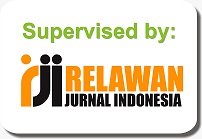The Classroom Teachers Role in Implementing Guidance and Counseling for Children with Aggressive Behavior
DOI:
https://doi.org/10.32939/tarbawi.v19i1.2551Keywords:
Aggressive Behavior Children, Classroom Teacher, Guidance and Counseling, Special Need EducationAbstract
The class teacher is a teacher in a school who has the task of teaching various subjects. In addition to their duties in providing learning, class teachers also have responsibilities that must be carried out, namely, carrying out guidance and counselling. This study aims to describe the classroom teacher's role in implementing guidance and counselling for mentally disabled children who behave aggressively at a private Special School (SLB) in Sumedang, West Java, Indonesia. This study is a descriptive qualitative research. The subjects in this study were 4 class teachers and 2 parents of students with mental retardation who behaved aggressively. Data collection techniques in this study include observation techniques, interviews and documentation. Data analysis techniques in this study used qualitative data analysis, which consisted of data collection, data reduction, data presentation, and conclusion. The results of this study indicate three role of class teacher in implementing guidance and counselling for mentally disabled children who behave aggressively, namely as an informant, namely providing information related to learning, guidance and counselling as well as the values of life that apply in the social environment; as a facilitator namely facilitating student needs such as understanding student learning skills, providing actions that are following students' interests and talents, facilitating learning facilities and infrastructure; and as a mediator, namely being an intermediary in overcoming learning difficulties and student development problems.
Downloads
References
Ashman, A. F. (2003). Peer mediation and students with diverse learning needs. In Cooperative learning (pp. 87-102). Routledge. https://doi.org/10.4324/9780203465264
Asyifa, R. A. (2017). Studi Kasus Perilaku Agresif Anak Tunagrahita Kategori Sedang Kelas IV SDLB Di SLB N Pembina Yogyakarta. Jurnal Widia Ortodidaktika, 6(5), 509–517. https://journal.student.uny.ac.id/index.php/plb/article/viewFile/7780/7407
Barbra, M., & Joyline, N. (2014). The inclusion of children with mental disabilities: A Teacher’s Perspective. International Journal of Humanities Social Sciences and Education (IJHSSE), 1(2), 65-75. https://www.arcjournals.org/pdfs/ijhsse/v1-i2/7.pdf
Demirel, M. (2010). Primary School Curriculum for Educable Mentally Retarded Children: A Turkish Case. Online Submission, 7(3), 79-91. https://eric.ed.gov/?id=ED511255
Henry, L., & Winfield, J. (2010). Working memory and educational achievement in children with intellectual disabilities. Journal of Intellectual Disability Research, 54(4), 354-365. https://doi.org/10.1111/j.1365-2788.2010.01264.x
Jagtap, P. (2016). Teachers role as facilitator in learning. Scholarly Research Journal, 3(17), 3903-3905. https://oaji.net/articles/2016/1201-1476521024.pdf
Lisinus, R., & Sembiring, P. (2020). Pembinaan Anak Berkebutuhan Khusus (Sebuah Perspektif Bimbingan Dan Konseling). Yayasan Kita Menulis.
Marsyaelina, A., Sudiyatno, S., & Iskandar, R. (2022). Appropriate learning media for mild mentally impaired students at inclusive vocational schools: A literature review. Jurnal Pendidikan Vokasi, 12(1), 93-99. https://doi.org/10.21831/jpv.v12i1.47717
Mayasari, N. (2019). Layanan Pendidikan Bagi Anak Tunagrahita Dengan Tipe Down Syndrome. Yinyang: Jurnal Studi Islam Gender Dan Anak, 14(1), 111–134. https://doi.org/10.24090/yinyang.v14i1.2847
Muhammed, S. A., & Imam, S. (2020). Impact of Dual Role of Teaching and Practice on School Counsellors’ Productivity in Nigeria. Journal of Education and Research, 10(2), 98-118. https://www.nepjol.info/index.php/JER/article/view/32723
Myers, D. G., & Twenge, J. M. (2018). Exploring Social Psychology (8th ed.). McGraw-Hill.
Pramartha, I. N. B. (2015). Sejarah Dan Sistem Pendidikan Sekolah Luar Biasa Bagian a Negeri Denpasar Bali. Historia: Jurnal Pembelajaran Sejarah Dan Sejarah UM Metro, 3(2), 67–74. https://doi.org/10.24127/hj.v3i2.274
Pratt, H. D., & Greydanus, D. E. (2007). Intellectual disability (mental retardation) in children and adolescents. Primary Care: Clinics in Office Practice, 34(2), 375-386. https://doi.org/10.1016/j.pop.2007.04.010
Putra, D. J., & Rahman, Z. (2019, October). The role of guidance and counseling teacher in solving students’ learning difficulties in physics. In Journal of Physics: Conference Series (Vol. 1321, No. 3, p. 032056). IOP Publishing. http://doi.org/10.1088/1742-6596/1321/3/032056
Setiowati, A., & Nuryanto, I. L. (2022, April). Identification of guidance and counseling service needs for elementary school. In International Seminar on Innovative and Creative Guidance and Counseling Service (ICGCS 2021) (pp. 42-45). Atlantis Press. https://doi.org/10.2991/assehr.k.220405.008
Sugiyono. (2019). Metode Penelitian Kuantitatif, Kualitatif, dan R&D. Alfabeta.
Supriyanto, E. (2017). Hubungan Kematangan Emosi dan Agresivitas pada Pemain Sepakbola Remaja Akhir. Jurnal Psikologi, 10(2), 182–191. https://ejournal.gunadarma.ac.id/index.php/psiko/article/view/1788
Susanti, N., & Harningtyas, S. (2019). Penggunaan Permainan Tradisional Engklek Dalam Peningkatan Konsentrasi Pada Anak Tunagrahita Di Sekolah Luar Biasa C Autis Kedungkandang Kota Malang. Conference on Research & Community Services, 1(1), 150–153. https://core.ac.uk/download/pdf/267901527.pdf
Switri, E. (2020). Pendidikan Anak Berkebutuhan Khusus. CV. Penerbit Qiara Media.
Syarif, F. (2017). Hubungan Kematangan Emosi dengan Perilaku Agresi pada Mahasiswa Warga Asrama. Psikoborneo: Jurnal Ilmiah Psikologi, 5(2), 199–207. https://doi.org/10.30872/psikoborneo.v5i2.4364
Tohirin. (2015). Bimbingan dan Konseling di Sekolah dan Madrasah. PT Raja Grafindo Persada.
Tzivinikou, S., & Papoutsaki, K. (2016). Studying teaching methods, strategies and best practices for young children with special educational needs. Early Child Development and Care, 186(6), 971-980. https://doi.org/10.1080/03004430.2015.1071101
Wahsheh, N. A. (2019). The Level of the Aggressive Behavior of Mentally Disabled Students at Ajloun Governorate from the Teachers' Point of View. International Journal of Special Education, 34(1), 152-165. https://www.internationalsped.com/ijse/issue/view/11/8
Zulfah, R. H., & Mahmudah, S. (2019). Assertive Training Untuk Mengurangi Perilaku Agresif Pada Siswa Tunagrahita SMALB. Jurnal Pendidikan Khusus, 11(3). https://ejournal.unesa.ac.id/index.php/jurnal-pendidikan-khusus/article/view/27919
Downloads
Published
Issue
Section
License
Copyright (c) 2023 Anneke Kynda, Budi Astuti, Alifa Nurul Karima

This work is licensed under a Creative Commons Attribution-ShareAlike 4.0 International License.









